The Israel National Academy of Sciences will hold the traditional festive ceremony on Hanukkah to welcome the six new members who joined its two divisions this year. With their joining, the academy has 125 members. Academy members are elected for life.
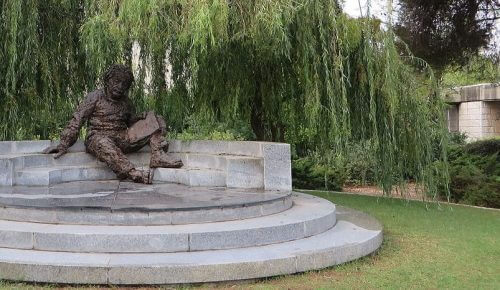
The six scientists are:
Yunina Elder - Professor of Electrical Engineering at the Technion, Israel Institute of Technology
Ronnie Allenblum – Professor of Geography at the Hebrew University of Jerusalem
Zelig Ashkar - Professor of Immunology at the Weizmann Institute of Science
Eyal Benvanishti - Professor of Law at Tel Aviv University
Yaakov Kaduri - Professor of Bible at Bar-Ilan University
Andrew Flex - Professor of East Asian Studies at the Hebrew University of Jerusalem and Tel Aviv University
The ceremony will take place on Tuesday, the eve of the eighth candle of Hanukkah, 19st of Tevet 2017, December XNUMX, XNUMX, at the Academy House in Jerusalem at the open session of the General Assembly.
The President of the Israel National Academy of Sciences, Prof. Neely Cohen, welcomed the new members of the Academy and said that their joining strengthens the ranks of the Academy of Sciences with additional researchers of the highest caliber, and they will help the Academy achieve its goals and develop the extensive scientific activity in Israel in the years to come.
The Israel National Academy of Sciences is the highest body in the scientific community in Israel. It was founded by law in 1961 with the aim of bringing together the best scientists in Israel, fostering and promoting scientific activity in the country, and advising Israeli governments regarding research and scientific planning of national importance.
Summary of the CVs of the new members of the Academy of Sciences
Prof. Yunina Elder
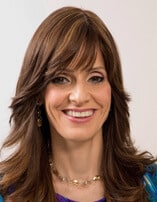
Yunina Elder is a professor of electrical engineering at the Technion and heads the SAMPL laboratory. She is also a research fellow at MIT, an adjunct professor at Duke University, has been a visiting professor at Stanford University and holds the Edwards Chair in Electrical Engineering.
Prof. Elder graduated with a bachelor's degree in physics and a master's degree in electrical engineering with high honors at Tel Aviv University, and completed her third degree at MIT. In 2002 she joined the Faculty of Electrical Engineering at the Technion.
The fields of activity in her research are the development of algorithms for representation, transmission, signal processing and information processing. In recent years, she has focused on efficient sampling methods, signal processing and optimization in communication systems, radar and medical imaging, signal processing for optics using super-resolution methods, and computational biology.
Prof. Elder has won many awards, including the Creel Award, the Bruno Award, the Taub Award (twice), the Herschel Rich Award for Scientific Innovation (three times) and several awards for excellence in teaching. She was a member of the Council for Higher Education and the Israeli Young Academy.
Prof. Elder has published hundreds of articles in newspapers and international conferences, four books, ten chapters in scientific books and twenty patents. She serves as a consultant and board member of several hi-tech companies.
Prof. Roni Allenblum
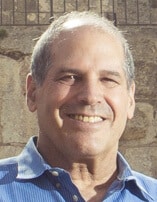
Roni Allenblum is a professor in the Department of Geography at the Hebrew University of Jerusalem and specializes in intermediate geographies, the history of the Levant in the Middle Ages and the Crusades. His most recent studies dealt with environmental and climatic history, the history of urbanization and the history of Jerusalem.
Prof. Allenblom heads the research project of Masad Atar (archaeological site) and established a series of digital projects that make available to the public databases on the history of Jerusalem (together with Al-Quds University) and historical cities and English translations of the certificates and charters from the Crusader period.
He developed a comprehensive theoretical approach to "fragility" according to which a relatively short period of one or two decades in which climatic disturbances occur such as droughts, unrelenting rains or particularly cold winters, may cause extremely severe social phenomena and that a relatively easy stabilization or improvement in climate conditions for a few decades may create conditions of abundance. Prof. Allenblum bases the theory of fragility on the rich and well-dated textual and archaeological information that the literate civilizations of the ancient world left behind and with his help reconstructs with a high temporal and spatial resolution also phenomena of collapse. His works on climate change are particularly innovative and influence broad areas of research.
The combination of his expertise in the fields of geography, history and archeology and his considerable scientific contribution on climate and the study of the Crusades made him an important multidisciplinary researcher in Israel and the world.
Prof. Zelig Ashhar
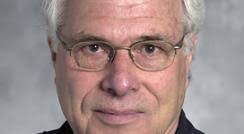
Prof. Zelig Ashchar was born in 1941. Graduated from the Hebrew University with a degree in biology. He completed his PhD in the Department of Immunology at the Weizmann Institute.
Zelig Ashchar from the Department of Immunology at the Weizmann Institute of Science is a scientist and a pioneer in the field of immunotherapy. His research focused on isolating antigens from T-cell membranes and preparing serum to prevent tissue rejection. He did postdoctoral training in the Department of Pathology at Harvard Medical School, where he was first exposed to cancer research. When he isolated and identified a unique antigen for Hodgkin type cancer. Upon his return to Israel, he joined the faculty of the Department of Immunology at the Weizmann Institute.
His research contributed a lot to understanding the activity of the immune system - in a normal state and in dealing with diseases. The highlight of his scientific work is the development of genetically modified T cells for the destruction of cancer cells. Clinical trials using the method he developed are already yielding positive results and saving the lives of patients. Contributed greatly to the establishment of the research and development infrastructure in the field of immunology in Israel, and placed it at the forefront of global research. The studies were published in top scientific journals and resulted in patents, many of which have been applied and are currently being used to treat patients.
Over the years, he held a series of academic positions, including head of the immunology research department at the Weizmann Institute of Science, a member of the scientific advisory committee at Kate Pharma; Chief Scientist, Founder and Head of the Scientific Advisory Committee at Pharma Israel; A pioneer in the management of the European Garden Healing Association and a member of professional committees in Israel and around the world.
His scientific work earned him prizes and awards, including the Israel Prize, the Emet Prize and the Novartis Prize. Over the years he won research scholarships and was a research fellow at prestigious research institutions in the world. He currently serves as a professor of immunology at the Weizmann Institute of Science and the Ichilov Hospital.
Prof. Eyal Benvanishti
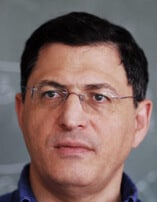
Eyal Benvanishti is a professor at the Faculty of Law at Tel Aviv University and is in charge of the Ani and Paul Yanovitch Chair of Human Rights. He is also a professor at the Faculty of Law of the University of Cambridge and is in charge of the Whewell Chair of International Law.
Prof. Benvanishti graduated with a bachelor's degree in law at the Hebrew University of Jerusalem and a master's and a master's degree at the Yale University School of Law. In 1990 he joined the teaching staff of the Faculty of Law at the Hebrew University of Jerusalem. In 2002 he joined the teaching staff of the Faculty of Law at Tel Aviv University.
Along with teaching and research in Israel, Prof. Benvanishti served as a guest lecturer at several law schools in the USA - at Harvard, Yale, Columbia, Michigan and Pennsylvania universities - as well as at the University of Toronto and the University of Hamburg. Since 2003, Prof. Benvanishti has been a member of the global faculty of the NYU School of Law. In 2016 he joined the faculty of the University of Cambridge.
Prof. Benvanishti's area of expertise is international law, constitutional law and administrative law. In the field of international law, he deals and deals with these issues: laws of war, management of transboundary natural resources, decision-making in international organizations, the role and structure of international tribunals, the interrelationships between national law and international law, the status of multinational corporations , minority rights. In the fields of constitutional and administrative law, he wrote on the justification for judicial review, on human rights in Israeli law, and on the legal review of the administrative procedure. His main research project in recent years deals with the idea of sovereignty as responsibility. This research was awarded a research grant of the ERC Advanced Grant in 2012.
Prof. Benvanishti serves as co-editor of the journal British Yearbook of International Law and is an editorial member of the journal American Journal of International Law. He is the first Israeli in this position. He won an Alon scholarship, a Zeltner award for a young researcher, an award for the best article published by a young researcher in the journal American Journal of International Law, the Landau Prize for Science and Research, the Alexander von Humboldt Prize, the Cheshin Prize for academic excellence in research and the Kader Prize for groundbreaking research for a senior researcher at Tel Aviv University. He is a member of the Institut de droit international.
Prof. Yaakov Kadori
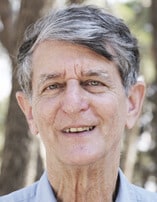
Yaacov Kaduri was born in New York in 1945, studied at Yale and Harvard universities and also taught at these two universities, and in 1992 began teaching as a full professor in the Bible department of Bar Ilan University.
Professor Kaduri is one of the most important, well-known and original researchers in the study of Judaism in this generation. His expertise and contribution are spread over many fields in Jewish studies: the Bible, the interpretation of the Bible in the days of the Second Temple, Midrash, the study of biblical poetry and the theory of exegesis. In each of these fields he made weighty contributions and his research was published in many articles and books that were published in the most important scientific forums in Israel and abroad, and were also translated into various languages such as Russian, French, Japanese and Korean.
His essays won him many prestigious awards, including the Grawemeyer in Religion Award for 2001 for his two books The Bible as It Was and-Traditions of the Bible. his book How to Read the Bible Won the Best Book Award in all categories of the National Jewish Book Awards in 2007. The New York Times chose this book as one of the best books printed in 2007 in all categories.
Prof. Kaduri was recently awarded the Rothschild Prize in the field of Jewish Sciences in Israel. He retired from Bar-Ilan University in 2013.
Prof. Andrew Flex
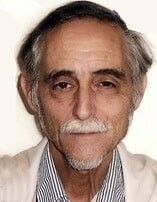
Andrew Flex of the Department of East Asia at the Hebrew University of Jerusalem and Tel Aviv University is one of the greatest scholars of China and the Far East of our time, and a world-renowned expert on classical Chinese literature.
Prof. Flex graduated with a bachelor's and master's degree in the Department of East Asian Studies at Princeton University. As part of his BA studies, he spent an extended period at the University of Tokyo and the National Taiwan University, where he acquired a professional command of the Chinese and Japanese languages on their various levels. For the doctoral program at Princeton, he switched to the Department of Comparative Literature, and wrote his doctoral thesis on the great masterpiece of Chinese literature in the light of literary theory and Western texts from the Middle Ages and the Renaissance. He taught at Princeton for more than 34 years in the Department of East Asia and Comparative Literature. Served as a guest lecturer at many universities in the USA, Europe and the Far East. Since 1994 Prof. Flex teaches at the Hebrew University in Jerusalem.
Over the course of these years, the center of his interest gradually shifted from the literary masterpieces to the fundamental texts of Chinese thought, starting from antiquity to the end of the empire. Among his prominent publications written in English, Hebrew and Chinese are his book on the "Four Masterpieces of the Chinese Novel in the Ming Period", comprehensive collections of the interpretive material on Chinese texts for their generations, and translations of two of the canonical "Four Books" in the Confucian tradition. Now he is nearing the end of the Hebrew translation of the enormous work "The Dream of the Red Tabernacles".

2 תגובות
There is no disputing the importance of the humanities, but exact sciences will be poorly represented here. I don't know what trend this represents.
There are huge former Israeli professors in the world. We missed them. Professor Joshua Bengio in Toronto - huge.
600 articles. There is no chance he will come to Israel.
The Technion has Professor Michael Elad. The professor who makes professors. where is he. Artificial intelligence developer, compressed sensing, iterative shrinkage. Right now, without any effort, I counted 3 of his doctoral students who are professors.
Professor Bronstein Alex, his twin brother in Lausanne and Dr. Raja Jiris. Michael Elad is worthy and a half.
I don't understand the politics here.
Well done!